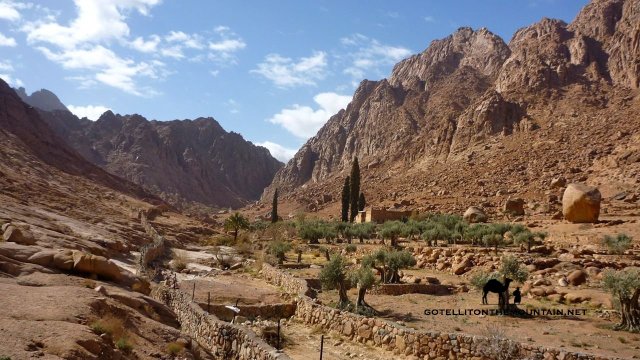Within the pages of the New Testament, the word covenant comes up over 30 times. It might be surprising to find out that most of the time, it is not the “new” covenant. In fact, the term “new covenant” is only found about 10 times, and that includes in Hebrews 8 when quoting Jeremiah. The question that forms in my mind is why the new covenant is not utilized so much more regularly, if what God is so zealous for is a new covenant that is “better” than the old. Yet, when we read the conclusion of Hebrews, it is not the new covenant that the author mentions in his benediction, but the everlasting, or eternal, covenant.1 For the author of Hebrews, while there was much argument given about the “new covenant” being the “better covenant”, the conclusion was a blessing through the blood of the everlasting covenant.
Apparently, if we are to use easy deduction, the everlasting covenant is the same thing as the new covenant.2 It is the same Messiah, the same Shepherd, the same blood, and the same glory of God that is being worked in you, through your being made complete in every good work to do His will. Shall we then expect that there is somehow a disconnection, or even two different covenants for two different peoples? No, but the eternal covenant is the common thread that links all of history unto the end of the age. Whether we are looking into the past, and seeing the great promises that God has given, or whether we are looking unto the future, and reading the prophecies of David ruling over Israel, we can see the term “eternal covenant” used in both cases. Abraham was promised the Land and the inheritance as an eternal covenant, and David was also promised an heir that would sit upon his throne forever as an eternal covenant. Yet, the prophets use this term in eschatology as the moment when all Israel is saved, and David rules over them, and the nations themselves study war no more.
What are some of these passages that I’m speaking of?
Ho! Everyone who thirsts, come to the waters; and you who have no money, come, buy and eat. Yes, come, buy wine and milk without money and without price. Why do you spend money for what is not bread, and your wages for what does not satisfy? Listen carefully to me, and eat what is good, and let your soul delight itself in abundance. Incline your ear, and come to me. Hear, and your soul shall live; and I will make an everlasting covenant with you – the sure mercies of David. Indeed I have given him as a witness to the people, a leader and commander for the people. Surely you shall call a nation you do not know, and nations who do not know you shall run to you, because of the Lord your God, and the Holy One of Israel; for He has glorified you.
Isaiah 55:1-5
And they shall rebuild the old ruins, they shall raise up the former desolations, and they shall repair the ruined cities, the desolations of many generations. Strangers shall stand and feed your flocks, and the sons of the foreigner shall be your plowmen and your vinedressers. But you shall be named the priests of the Lord, they shall call you the servants of our God. You shall eat the riches of the Gentiles, and in their glory you shall boast. Instead of your shame, you shall have double honor, and instead of confusion they shall rejoice in their portion. Therefore in their land they shall possess double; everlasting joy shall be theirs. For I, the Lord, love justice; I hate robbery for burnt offering; I will direct their work in truth, and will make with them an everlasting covenant. Their descendants shall be known among the Gentiles, and their offspring among the people. All who see them shall acknowledge them, that they are the posterity whom the Lord has blessed.
Isaiah 61:4-9
Behold, I will gather them out of all countries where I have driven them in my anger, in my fury, and in great wrath; I will bring them back to this place, and I will cause them to dwell safely. They shall be my people, and I will be their God, then I will give them one heart and one way, that they may fear me forever, for the good of them and their children after them. And I will make an everlasting covenant with them, that I will not turn away from doing them good; but I will put my fear in their hearts so that they will not depart from me. Yes, I will rejoice over them to do them good, and I will assuredly plant them in this land, with all my heart and with all my soul.
Jeremiah 32:37-41
Notice that these passages, with the potential exception of the first, cannot simply be explained away as pertaining to the church. The very people who were scattered are the people who are regathered. The very cities that were made desolate and a wasteland are the ones that are rebuilt. The very people who were in judgment, driven away in God’s anger, wrath, and fury, are the ones who God declares that will be brought back to this place, the very place from where they were scattered, where they will be given one heart and one mind – which Paul quotes and says that we should have now3 – that they may fear God forever, for their own good, and for the good of their children after them. You can’t rid this promise from the very people who are under judgment. Just like Paul expresses that his heart in speaking difficult and reproving things to the Corinthians was not in hostility, but rather to show his great love for them,4 so we see that Jeremiah 32:37-41 ends with God saying that He will plant “them” in “this land”, with all of His heart, and with all of His soul. That quote is God quoting His own command unto Israel in Deuteronomy 6. Just as Israel shall love the Lord their God with all of their heart and soul, God is zealously proclaiming that the glory that shall be theirs, an eternal inheritance where heaven and earth touch, is the display of God loving Israel with all of His heart and with all of His soul.
Shall we attempt to pass by this? Shall we attempt to negate this? Who are we to claim the potter should have made us more glorious than He made others? Are you in the place of God? Do you not know that after Jeremiah 31 comes Jeremiah 32? And do you not know that after Jeremiah 31:31-34 comes Jeremiah 31:35-37? And do you not know that in that passage God declares that the new covenant is not for Gentiles that have taken the place of ethnic Israel, through whatever circumstances, but for the very ones that God led out of Egypt by His own hand? This is what makes it eternal. It is everlasting because from the beginning, and even before the foundation of the world, God has destined that He would have a people who would be made into His image and likeness, and whatever people that might be, it would be Israel. Ziba, the servant of Saul, loved David, and David loved Ziba, even though he was not ethnically Israel. Does that stop him from receiving honor in being counted as part of Israel? Such a question shows the lack of understanding God’s perfect love.
It does not seem like God is an either/or kind of God. Does the inheritance mean a heavenly inheritance? Yes. Does it mean an inheritance of the land of Canaan that has been promised Abraham? Yes. Isn’t that contradictory? God forbid that you should think that. When God establishes an eternal covenant, says that ordinances shall be for all generations, an everlasting ordinance, a statute forever, what other wording could God have used to say that this is going to last forever? How can we take this as meaning only until the heavenly thing comes into being through this hidden or mysterious entity called the church?
God is simply not trapped by these sorts of methods. We can’t make a claim on God that He has to fulfill, because His word says so, and we know His word. The land, the people, the priesthood, and even the law are all reflections of things in heaven. Just as there were twenty four priestly families, there are twenty four elders before the throne of God. Just as there is an altar in heaven, there is an altar upon the earth. The startling conclusion of the prophets is that when they saw the earthly things being destroyed or taken away captive, they did not dis-include the heavenly, eternal things from what was being destroyed and taken away captive.5
We have rightly perceived that the earthly things, commanded in the first five books of the Bible, are patterns of eternal things. What we have not rightly concluded is God’s care (or lack thereof) of the earthly things. The eternal covenant is the embodiment of all of God’s words throughout the Scriptures, and come together throughout the life of all of His saints. The sublime scandal is the specificity of God to choose, and that His choosing is His prerogative. He shall have mercy upon whom He shall have mercy. And, if God is truly the God of Abraham, Isaac, and Jacob, then His choosing and election is not something separated from love or “fairness”.6 The great rage against God’s election is not from any fault in God, but from our own arrogant high mindedness, being wise in our own conceit, and thinking more of ourselves than we ought.
1Hebrews 13:20
2Specifically, when comparing the passage of Hebrews 13 with the statements given of the new covenant.
3Romans 15:6, 1 Corinthians 1:10, Philippians 2:2
42 Corinthians 2:4
5Jeremiah paints this vividly in Lamentations 2:1, when his response of seeing the people being taken away captive is that God has cast “the beauty of Israel” from heaven to earth. Yet, these are the ones in judgment, whom we would have assumed are not “in heaven”, but rather too much in the earth. Even if that is true, it does not disqualify that we are seated with Christ in heavenly places, and that we are ambassadors, and that we are in the world, but not of the world. Where do you think such statements come from? They come from the very concepts painted in these sorts of verses and passages in the Old Testament prophets about ethnic Israel, even disobedient ethnic Israel.
6Since when is it appropriate to put such condescending thoughts upon God’s character? If God chooses something, it is in His wisdom and character that He chooses. Maybe that is the problem. We are altogether not like Him, and we don’t think like Him. The sin that God indicts Israel with in Psalm 50:21 is that they thought Him to be like them, and now we are performing the exact same sin.




